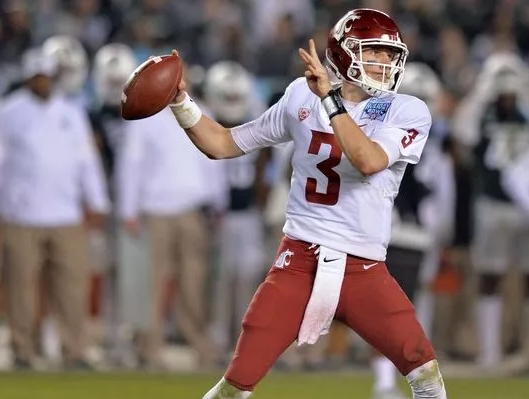News
21-year-old football player had CTE when he took his life

A 21-year-old Washington State football player who committed suicide in January had extensive damage to his brain linked to football-related brain trauma, his family recently revealed.
Tyler Hilinski committed suicide in his apartment using a gun, a scenario remarkably common among former football players with CTE.
Yesterday, his parents, Mark and Kym Hilinski, appeared on NBC’s “Today” and said that the Mayo Clinic had requested to examine his brain during an autopsy.
The results of the autopsy showed that Tyler had significant brain damage caused by chronic traumatic encephalopathy (CTE).
CTE is a permanent neurodegenerative disease linked to repeated brain trauma and concussions. The condition has been found in over one hundred former NFL players through post-mortem autopsies.
The Hilinski family is also participating in a Sports Illustrated documentary about their efforts to find answers about their son’s death.
In the interviews, Kym Hilinski says they had no idea Tyler was suffering. He seemed happy and had never shot a gun before in his life. Police said the rifle used in his death belonged to a teammate and was taken without the teammate’s knowledge days before.
Despite learning their son had significant brain damage from CTE, the Hilinskis say they can’t completely blame football.
“Did football kill Tyler? … I don’t think so. Did he get CTE from football? Probably. Was that the only thing that attributed to his death? I don’t know,” Kym Hilinski said in the documentary.
Tyler’s brother, Ryan Hilinski is also a high school football player who has been recruited by the University of South Carolina. While he doesn’t plan to stop playing, he says Tyler’s diagnosis makes him worry.
“I think Tyler would want me to do the same thing. I don’t think he’d want me to stop,” Ryan Hilinski said.
In response to the news, Washington State has said it will be adding in more protections for students, including a second formal mental health screening for football players and holding meetings with all varsity sports athletes to consider mental health risks.



